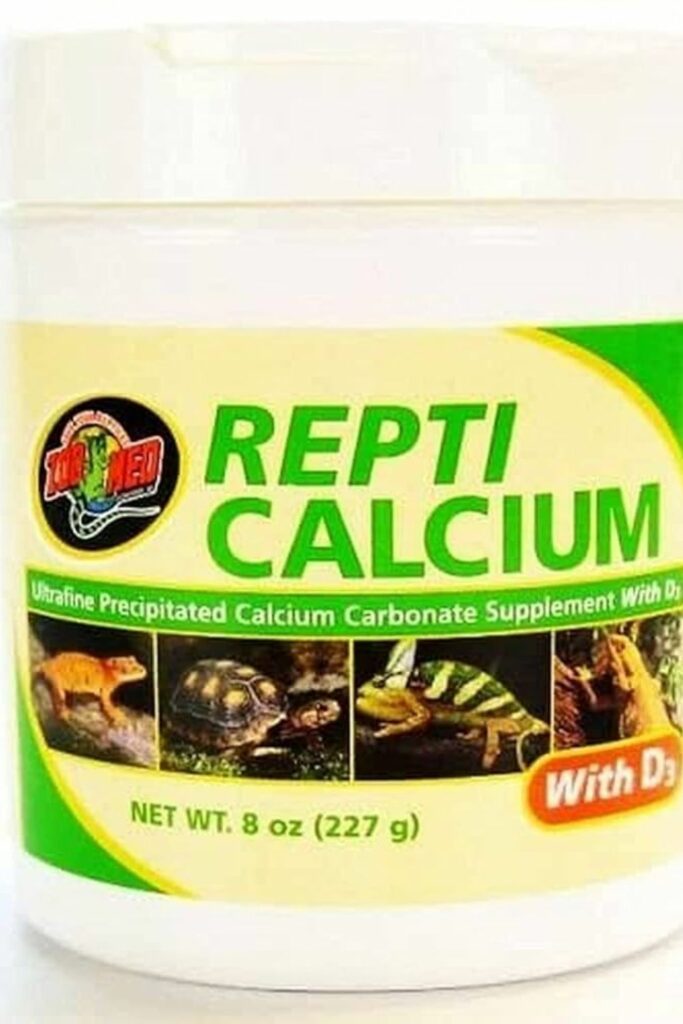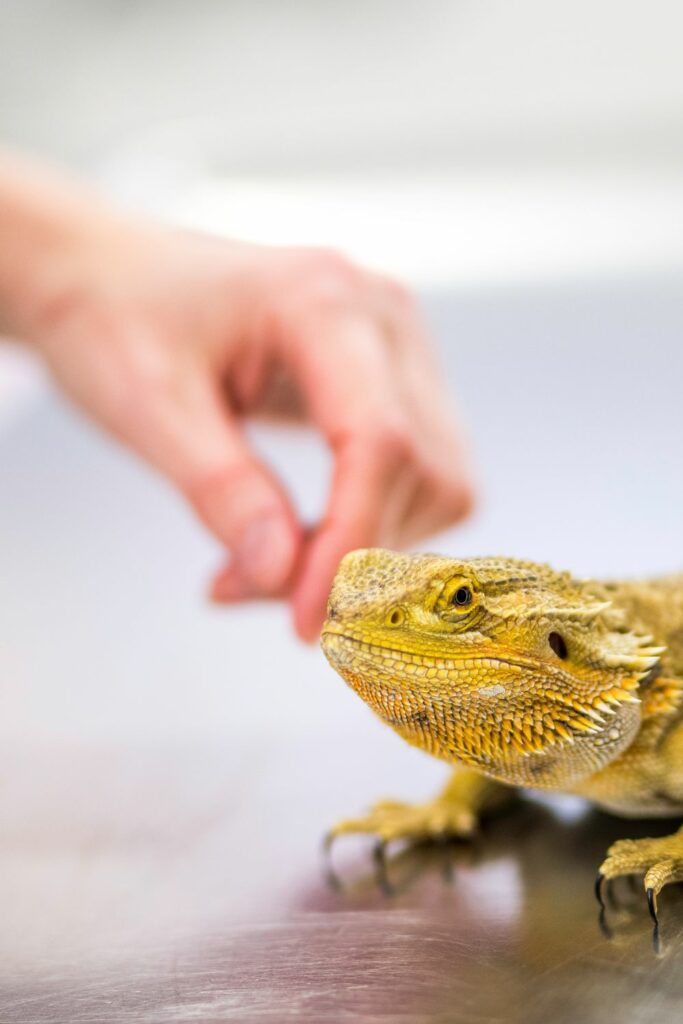In this article Show
If you’re like me, you know that keeping our scaly friends healthy is a top priority. One of the key elements in achieving that is calcium. Yep, that’s right—our reptiles need their daily dose of calcium, just like we do. But here’s a question that’s been bugging me, and maybe you too: Does reptile calcium expire?
In today’s post, we’re going to dive deep into this topic. We’ll explore why calcium is so crucial for your reptile, how to spot expired calcium supplements, and what risks come with using them past their prime.
So, if you’ve ever found an old jar of calcium powder at the back of your pet supply drawer and wondered if it’s still good to use, you’re in the right place.
Importance of Calcium for Reptiles
You might be wondering, “Why all the fuss about calcium?” Well, let me tell you, calcium plays a vital role in your reptile’s health. It’s not just about strong bones; calcium is essential for muscle function, nerve signaling, and even blood clotting. Here’s a quick rundown of why calcium is non-negotiable for your reptile:
1. Strong Bones and Shells
For reptiles like turtles and tortoises, calcium is crucial for maintaining a strong shell. And let’s not forget our lizard and snake friends; they need calcium for skeletal strength too.
2. Muscle Function
Calcium helps in muscle contraction. Without adequate calcium, your reptile could suffer from muscle weakness or even spasms.
3. Nerve Signaling
Calcium ions are key players in nerve transmission. A calcium deficiency could lead to neurological issues, affecting your pet’s behavior and responsiveness.
4. Blood Clotting
Yes, even the process of blood clotting requires calcium. Injuries could become more severe if your reptile is lacking in this essential mineral.
Types of Reptile Calcium Supplements

When it comes to calcium supplements for your reptile, you’ve got options. However, not all calcium supplements are created equal. Let’s break down the most common types and weigh their pros and cons:
1. Calcium Powder
| PROS | CONS |
|---|---|
| Easy to apply on food. | Can be messy. |
| Widely available. | May not stick well to all types of food. |
| Affordable. |
2. Liquid Calcium
| PROS | CONS |
|---|---|
| Easy to mix with water or food. | May require refrigeration. |
| Good for reptiles that are picky eaters. | Could be more expensive than powder forms. |
3. Calcium Blocks
| PROS | CONS |
|---|---|
| Long-lasting. | Not suitable for all reptile species. |
| Doubles as a chew toy for some reptiles. | May not provide a consistent dosage. |
Each type of calcium supplement has its own set of advantages and drawbacks. Your choice will depend on your reptile’s specific needs and your own convenience. But regardless of the type you choose, there’s one question that remains: Does reptile calcium expire?
Signs of Expired Reptile Calcium
So you’ve found an old container of reptile calcium, and you’re not sure if it’s still good to use. Before you sprinkle it over your pet’s dinner, here are some signs that it might be time to toss that supplement:
- Color Changes: If the calcium has changed color, that’s a red flag. Fresh calcium supplements should maintain their original color. Any discoloration could indicate contamination or degradation.
- Texture Changes: Calcium powder should have a consistent texture. If it’s clumpy or has hardened, it’s likely past its prime.
- Smell: While calcium supplements don’t have a strong odor, any off-putting or unusual smell is a sign that something’s not right.
Remember, using expired calcium supplements isn’t just ineffective; it could be harmful to your reptile. Always check for these signs before using any supplement that’s been sitting around for a while.
Risks of Using Expired Calcium Supplements

You might be tempted to use that old jar of calcium powder anyway, thinking, “How bad could it be?” Well, using expired calcium supplements comes with its own set of risks that you should be aware of:
Ineffectiveness
The most immediate concern is that the calcium may lose its potency. This means your reptile won’t get the essential nutrients it needs, which could lead to health issues down the line.
Potential for Bacterial Growth
Expired supplements can become a breeding ground for bacteria. Even if it looks fine, there’s a risk that harmful microorganisms have made it their home.
Pose Health Risks for Your Reptile
Using expired calcium could lead to digestive issues, bacterial infections, or even more serious health complications for your reptile. It’s just not worth the risk.
The bottom line is when in doubt, throw it out. Your reptile’s health is too important to gamble with expired supplements.
How to Properly Store Reptile Calcium
So you’ve invested in a quality calcium supplement for your reptile—great! Now, let’s make sure it stays effective for as long as possible. Proper storage is key, and here are some tips to help you out:
1. Temperature
Store your calcium supplements in a cool, dry place. Extreme temperatures can affect the supplement’s effectiveness.
2. Humidity
Avoid storing the supplement in a humid area, like a bathroom. Moisture can lead to clumping and bacterial growth.
3. Air-Tight Containers
If your calcium supplement comes in a resealable bag or container, make sure it’s sealed tightly after each use. If not, consider transferring it to an airtight container.
4. Away from Sunlight
Direct sunlight can degrade the quality of the supplement. Store it in a dark place or in a container that blocks light.
By following these storage tips, you can extend the shelf life of your reptile’s calcium supplement and ensure it remains effective and safe to use.
Frequently Asked Questions
You’ve got questions, and I’ve got answers. Here are some of the most common queries I’ve come across regarding reptile calcium:
Can I use human calcium supplements for my reptile?
While it might be tempting to share your own calcium supplements with your scaly friend, it’s not recommended. Reptile-specific calcium supplements are formulated to meet their unique needs.
How often should I give my reptile calcium?
The frequency depends on the species, age, and health condition of your reptile. Always consult your vet for a tailored supplementation plan.
What happens if I accidentally use expired calcium?
If you’ve accidentally used expired calcium, monitor your reptile for any signs of discomfort or illness and consult your vet immediately. While the risks vary, it’s better to be safe than sorry.
Final Thoughts
We’ve covered a lot of ground today, from understanding the crucial role calcium plays in your reptile’s health to identifying the signs of expired calcium supplements. The key takeaway? Always check the expiration date on your reptile calcium supplements. Your pet’s health is too important to risk using ineffective or potentially harmful products.









